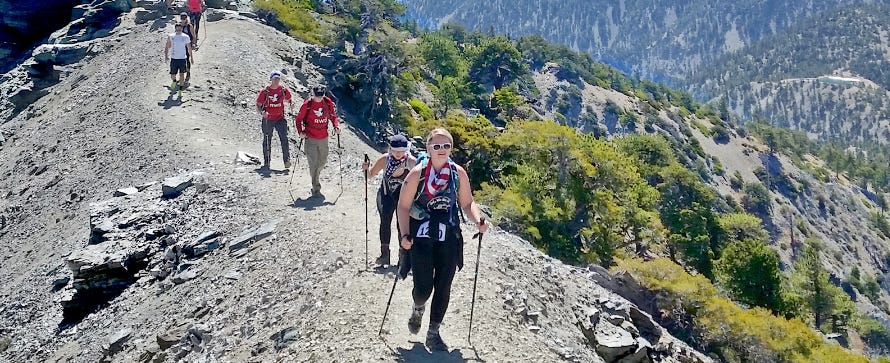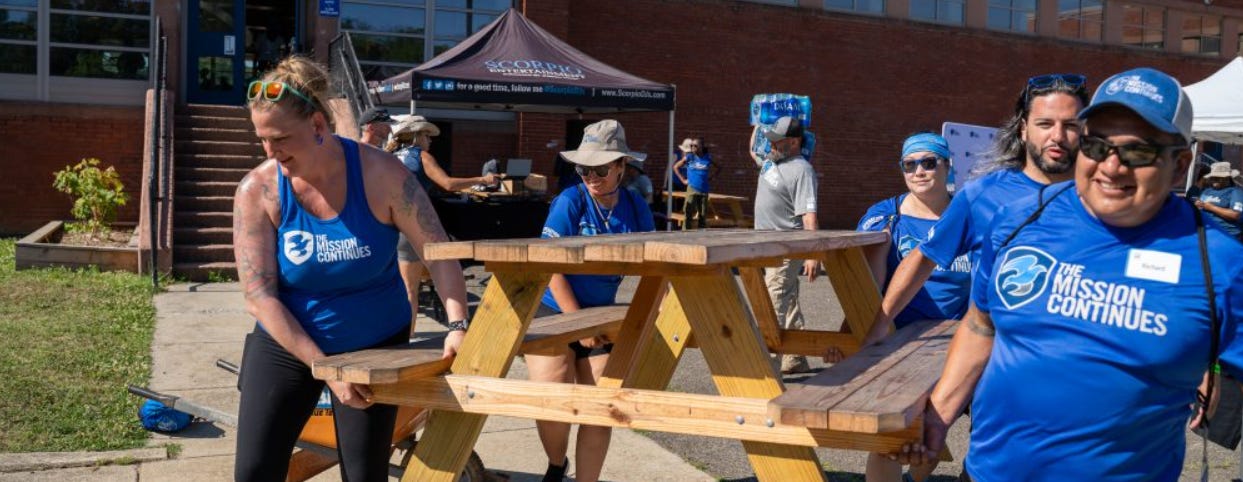Good morning,
First, a quick heads up: I’ll be moderating a panel tomorrow at 1:30PM ET for the Building Connected Communities action forum, hosted by Harvard Human Flourishing and the Foundation for Social Connection. We’ll be exploring lessons learned from two decades of efforts to promote veterans’ sense of connection and purpose, and I’ll be joined by Mary Beth Bruggeman (President of The Mission Continues), Laura Werber (Senior Management Scientist at RAND), and Clyde Thompson (Navy veteran and DC community leader). You can register to attend the forum virtually, including tuning into our panel, by following this link. And if you’ll be at the conference, please let me know.
Now, to the newsletter. Sometimes, there are people who just seem to “get it.” That’s how I’ve been feeling recently about David French and his writing on belonging for The New York Times. So, this week, I’m doing something different in our Reads section, highlighting three of French’s pieces that I’ve found particularly compelling. We also feature a timely spotlight on Mary Beth’s work with The Mission Continues as well as Laura’s research on veterans’ social connections.
As always, send us your thoughts on what’s going well and feedback on what we can do better (survey here). And feel free to pass this newsletter along to any friends who you think might be interested.
-Sam
The Reads
The New York Times - “Being There,” “The Bear” and “Politics Can’t Fix What Ails Us” by David French (2023)
Since David French joined The New York Times as a columnist earlier this year, he’s written some of the most poignant pieces I’ve read to date on friendship, community, and belonging. I’ve included links and questions raised for each of my three favorites below:
“Being There” - How can we honor the “first commandment” of friendship–being there–even when it is inconvenient?
“‘The Bear’ and the Need for a Place to Belong” - How do we respond to our friends and neighbors, who, like Richie in The Bear, are experiencing pain and suffering?
“Politics Can’t Fix What Ails Us” - How can attending to local concerns–rather than national issues–fill the need in our lives for purpose and belonging?
The Research
RAND Corporation - “What Are Organizations Doing to Strengthen Veterans’ Social Connections?” by Werber, Phillips, & Skrabala (2023)
Veteran-serving organizations across the U.S. have been offering programs to bolster veterans’ sense of camaraderie and purpose for the better part of the last two decades. This study represents the first systematic analysis of the services and activities these programs offer to promote veteran social connectedness and reduce the risk of isolation. What emerges is a portrait of hundreds of organizations offering dozens of types of programs, some of which have produced measurable, sustained improvements in veterans’ social connectedness.
As many civilian populations struggle with increasing rates of isolation and loneliness, it’s worth asking: what lessons can be translated from these veterans' community-building efforts to increase social connection among civilians?
The Work
The Mission Continues - Nationwide
The Mission Continues (TMC) is a nonprofit that empowers veterans to continue their service in under-resourced communities, and equips communities with veteran talent, skills, and preparedness to generate visible impact.
How it works: Veterans sign up to serve in local service platoons, which operate in 40+ cities nationwide. Led by veteran volunteer platoon leaders, each platoon works with dedicated community partners and volunteers to provide the manpower and support that they need to help them do their work more effectively. TMC has multiple leadership development programs that provide veterans with pathways for growth, both within TMC (as platoon leaders) and in their broader communities.
Why it matters: TMC generates impact at the individual and community level. Veteran volunteers and leaders report experiencing greater levels of connectedness and purpose in life–something that can be missing after transitioning from the military. And communities benefit from veterans’ service, both through their TMC service projects and their long-term service in their neighborhoods.
Have feedback on the newsletter? Want to share content for us to feature? Interested in getting involved as a contributor? Email us at theconnectivetissue@gmail.com.







